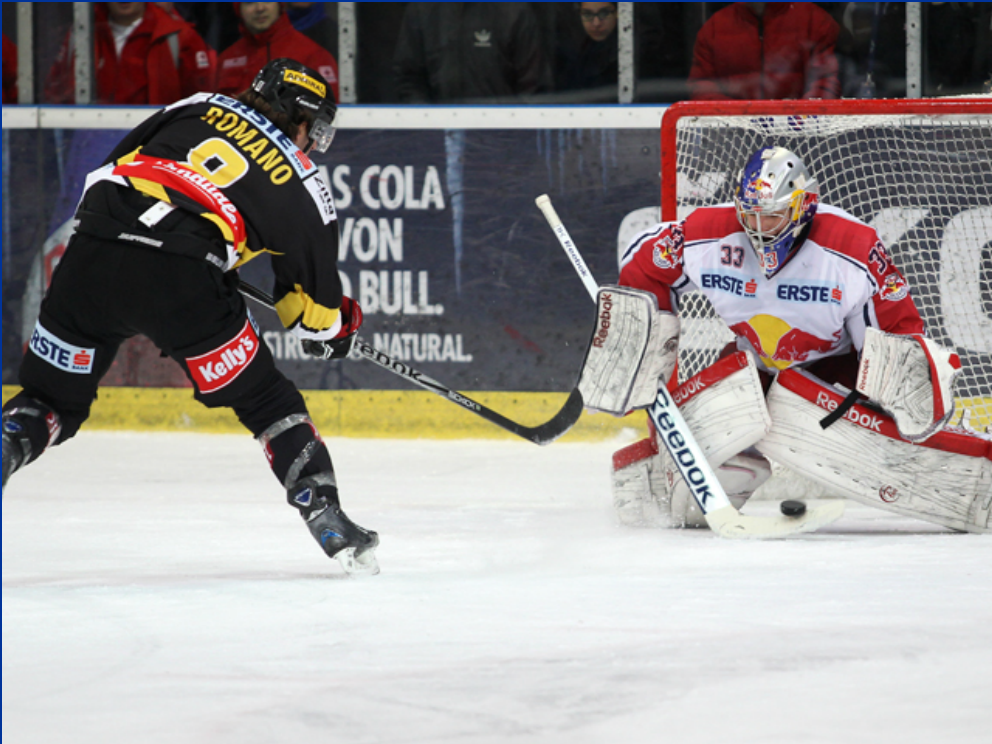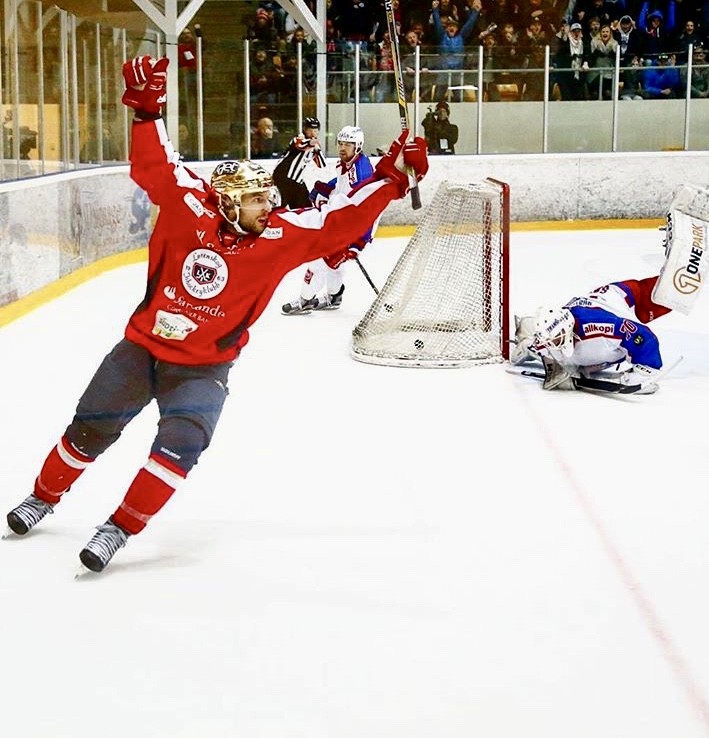add-victor alumni, Tony Romano, Talks to Us About the Pressure of European Ice Hockey
“It’s among the most pressurised positions in the sport because as a North American player you are expected to produce results every single game".
The Start.
Tony Romano was raised on sport. Ice hockey was his sport of choice. From the age of five he would travel for hours to play different teams in the area. Until he turned 18, he would get up at 05:30 in the morning and be at the rink at 6:00 to skate before school.
At 18 he went to Cornell University and played a year of college hockey. He ended up leaving after one year and played Major Juniors for two years in Canada, which is seen as a fast track to the NHL. He did that for two years. Then came his big break.
“I ended up signing with the New York Islanders. Playing for the Islanders was great because they were my hometown team. They have a pretty good history; back in the early 80s they had a dynasty. It was a big honour for me to have signed with them,” says Tony.
Tony played for the Long Island team for 3 years and after his third year - and a short stint in the minor leagues - he made the move to Europe.
The Pressures of Europe.
“My European career has been kind of crazy because I’ve played in six different cities in six years; the first year was Vienna, after that I was in Sweden for two years, then I was in Norway for one year and Denmark and then back to Norway this past season. I’m in Sweden at the moment because I’m basically retired from hockey at this point and I’ll be starting with Citi Group in February 2018.”
“It’s among the most pressurised positions in the sport because as a North American player you are expected to produce results every single game, no matter how you feel or whatever is going on in your life. With the limited sponsorship opportunities on offer, due to small budgets compared to the American game, and high expectations from your club and their supporters, the pressure mounts quickly.”
Back to School.
I’ve been pretty lucky actually because I’m one of those guys who figured out early what I wanted to do after sport. At University I knew I wanted to play hockey, then after a few years of not studying I decided to go back to school - that was when I was around 22-years-old – it was then that I started researching and paying attention to what my friends were doing. Growing up in New York, ‘finance’ is everywhere, says Tony, so it was natural for him to discuss it often with his friends with finance qualifications.
“Banking really got my interest and as I started to study more and really focus towards a degree in finance it became pretty clear that I was genuinely interested in this stuff. It took me a few years to finish [my studies], because I was trying to finish school while I was still playing, you know picking up classes anywhere I could actually. Once I did finish – that was about 2 and a half years ago – I just kept going. I enrolled in the CFA program.”

The more he got into it the more he was engrossed. “I got intellectually curious, which is great for banking. The next step was trying to get a job in banking which was really, really difficult because those jobs are highly coveted by some of the best talents that the top universities have to offer so for an older candidate like myself being 29, it was even more difficult.
“You get asked questions like, “Why now?” You have to reassure them you know this is the direction you want to take, but fortunately for me that’s when I was introduced to add-victor through another hockey player. We had a few talks and an opportunity opened up with Citi Group that would allow me to put everything I had learned to use. I learned how to tell my story and take advantage of the opportunity that I had and in those interviews.”
Taking the Opportunity.
It was during that entire interview process that my eyes really got opened to the possibility of a banking career in London. I had interviewed with some smaller banks back in the states but during those interviews I had my “Alright, this can actually happen” moment. I felt pretty good throughout the process and then the three interviews that I had in my last round are what made me relax and become more excited about the opportunity because I really liked the interviewer and the director as well. They just seemed really laid back and good genuine people. It made me want to work with people like that because the culture seemed to be a good fit for me.”
The former ice hockey forward will be working in M&A for the first two years and is not thinking much further ahead than that.
“There’s this trite saying in sport, “Not getting too far ahead of yourself, but taking it day-by-day,” I just want to focus on what I have in front of me and use the resources I have and try to rely on the guys on the team that I’m with as well, so it’s definitely a nice translation from sports to finance.”
